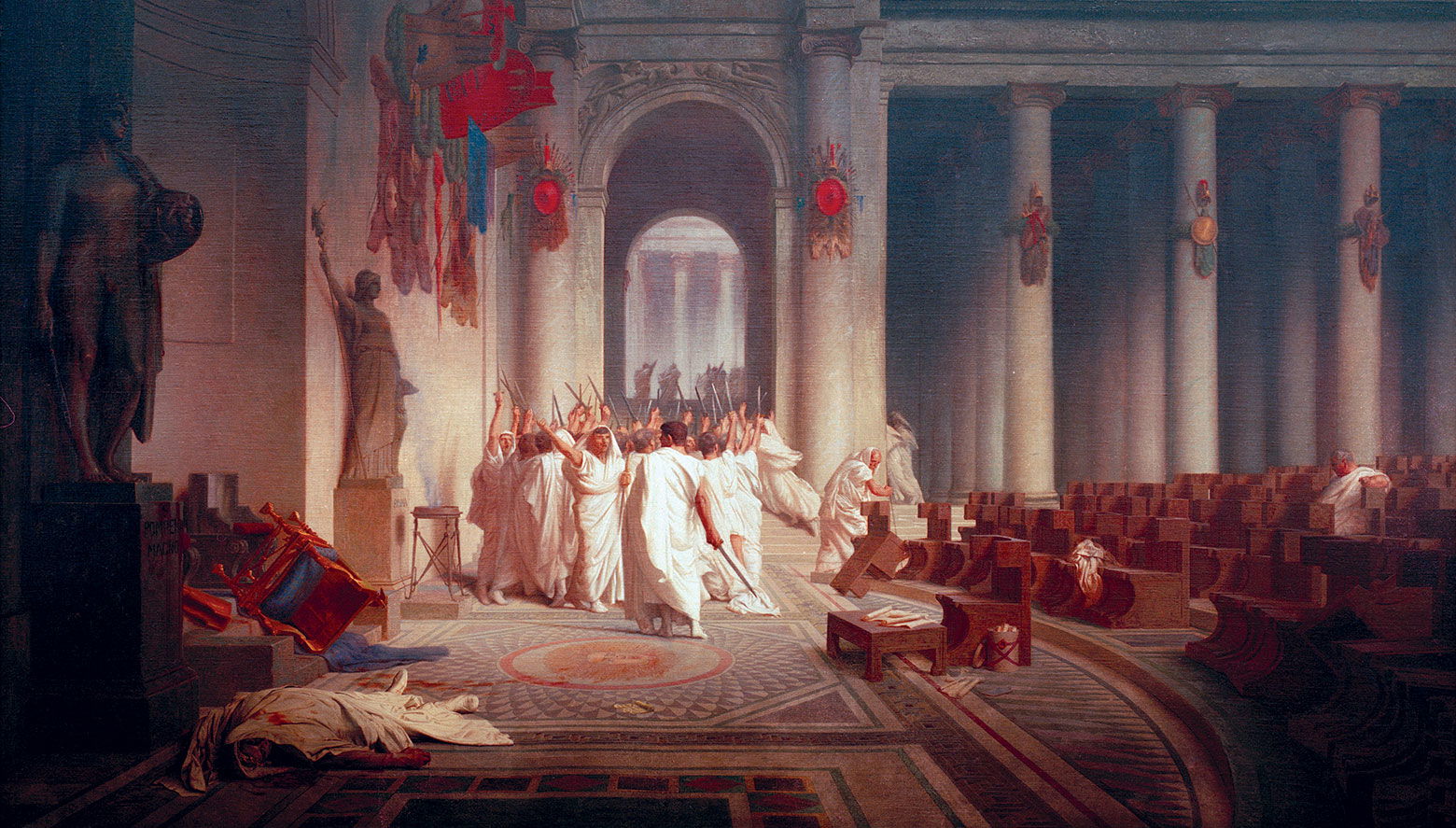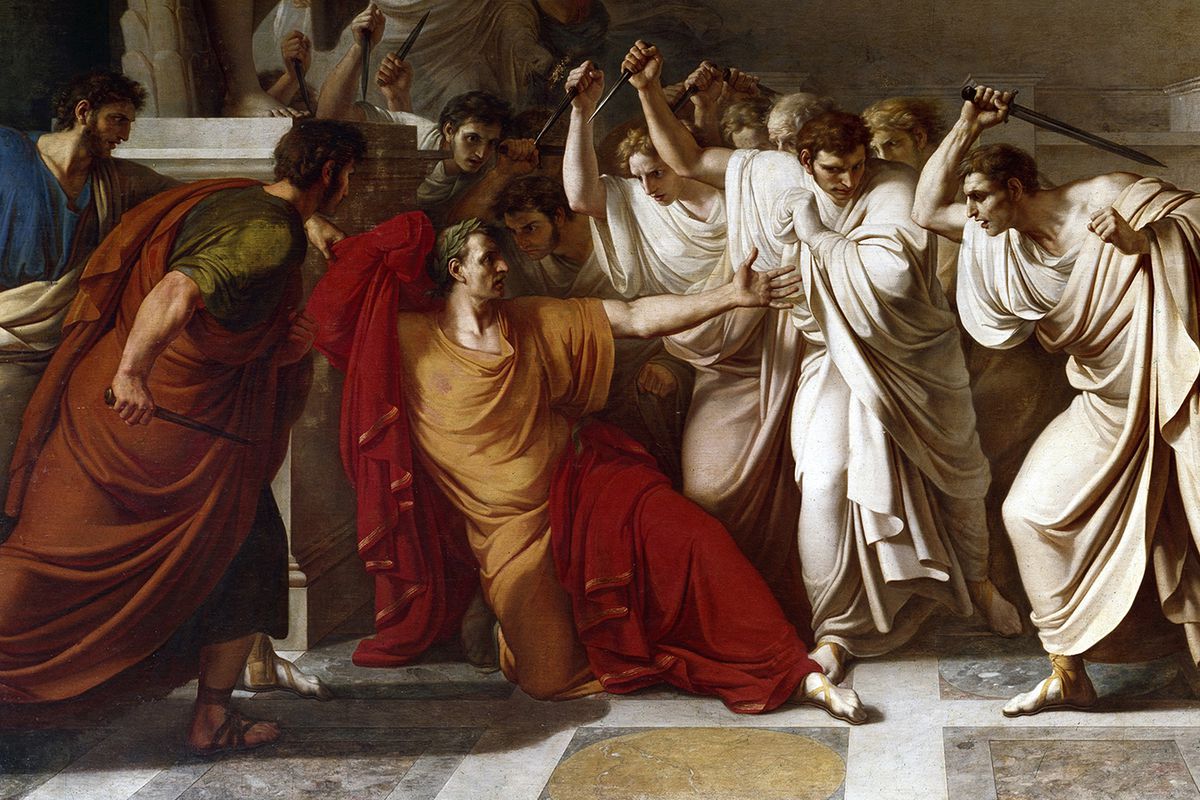

The key ancient sources that were contemporary with the conspiracy and assassination are named but largely lost, serving as source material for later authors. His attitude was manifested, in particular, when Mark Antony tried to publicly to crown him during the Lupercalia festival in February and when he failed (or refused) to rise out of his chair on the rostra to greet senators, a sign of disrespect toward his peers. At that point, he began to assume more kingly regalia and assume an attitude that positioned himself above his fellow senators. By January or February of 44, he declared himself perpetual dictator he wasn’t going to step down.


Having declared himself dictator (an office held under extraordinary circumstances for short periods of time), he refused to step down from power, taking steps to consolidate his position. Throughout his victories he set about pardoning his fellow Romans (his clemency “clementia” became legendary), returning to Rome to consolidate his power. He continued to wage war through 45, celebrating a fifth triumph in October of 45. He celebrated four triumphs back in Rome, between September 21- October 2, 46. After taking Rome, he then waged war against the government adherents and its defenders, winning many important battles throughout the Mediterranean. Aside from amassing a loyal following in his province, far exceeding his mandate, he achieved great wealth, and when threatened with reprisals upon returning to Rome as a private citizen at the end of his term, he decided to challenge Rome, marching past a requisite boundary of the Rubicon River with his army on January 10, 49. During that time, he aggressively fought and conquered much of Gaul, enrolling many of the Gauls into what became his own private army. He won the consulship in 59, and served as proconsul governor of Gaul from 58-50. Caesar, a brilliant orator, formed a political alliance with Pompey and Crassus in 60 BCE. Why did the conspiracy form? Why was Julius Caesar killed on this particular day? Why was he killed in the Senate House located within the Theater of Pompey complex (and not the Senate House in the Forum or elsewhere)?įirst, a brief historical overview. The fifteenth of March, 44 BC- the date of the assassination of Julius Caesar– has gone down in history as one of the most consequential dates in Roman history.


 0 kommentar(er)
0 kommentar(er)
